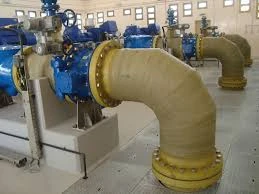
-
 Afrikaans
Afrikaans -
 Albanian
Albanian -
 Amharic
Amharic -
 Arabic
Arabic -
 Armenian
Armenian -
 Azerbaijani
Azerbaijani -
 Basque
Basque -
 Belarusian
Belarusian -
 Bengali
Bengali -
 Bosnian
Bosnian -
 Bulgarian
Bulgarian -
 Catalan
Catalan -
 Cebuano
Cebuano -
 China
China -
 China (Taiwan)
China (Taiwan) -
 Corsican
Corsican -
 Croatian
Croatian -
 Czech
Czech -
 Danish
Danish -
 Dutch
Dutch -
 English
English -
 Esperanto
Esperanto -
 Estonian
Estonian -
 Finnish
Finnish -
 French
French -
 Frisian
Frisian -
 Galician
Galician -
 Georgian
Georgian -
 German
German -
 Greek
Greek -
 Gujarati
Gujarati -
 Haitian Creole
Haitian Creole -
 hausa
hausa -
 hawaiian
hawaiian -
 Hebrew
Hebrew -
 Hindi
Hindi -
 Miao
Miao -
 Hungarian
Hungarian -
 Icelandic
Icelandic -
 igbo
igbo -
 Indonesian
Indonesian -
 irish
irish -
 Italian
Italian -
 Japanese
Japanese -
 Javanese
Javanese -
 Kannada
Kannada -
 kazakh
kazakh -
 Khmer
Khmer -
 Rwandese
Rwandese -
 Korean
Korean -
 Kurdish
Kurdish -
 Kyrgyz
Kyrgyz -
 Lao
Lao -
 Latin
Latin -
 Latvian
Latvian -
 Lithuanian
Lithuanian -
 Luxembourgish
Luxembourgish -
 Macedonian
Macedonian -
 Malgashi
Malgashi -
 Malay
Malay -
 Malayalam
Malayalam -
 Maltese
Maltese -
 Maori
Maori -
 Marathi
Marathi -
 Mongolian
Mongolian -
 Myanmar
Myanmar -
 Nepali
Nepali -
 Norwegian
Norwegian -
 Norwegian
Norwegian -
 Occitan
Occitan -
 Pashto
Pashto -
 Persian
Persian -
 Polish
Polish -
 Portuguese
Portuguese -
 Punjabi
Punjabi -
 Romanian
Romanian -
 Russian
Russian -
 Samoan
Samoan -
 Scottish Gaelic
Scottish Gaelic -
 Serbian
Serbian -
 Sesotho
Sesotho -
 Shona
Shona -
 Sindhi
Sindhi -
 Sinhala
Sinhala -
 Slovak
Slovak -
 Slovenian
Slovenian -
 Somali
Somali -
 Spanish
Spanish -
 Sundanese
Sundanese -
 Swahili
Swahili -
 Swedish
Swedish -
 Tagalog
Tagalog -
 Tajik
Tajik -
 Tamil
Tamil -
 Tatar
Tatar -
 Telugu
Telugu -
 Thai
Thai -
 Turkish
Turkish -
 Turkmen
Turkmen -
 Ukrainian
Ukrainian -
 Urdu
Urdu -
 Uighur
Uighur -
 Uzbek
Uzbek -
 Vietnamese
Vietnamese -
 Welsh
Welsh -
 Bantu
Bantu -
 Yiddish
Yiddish -
 Yoruba
Yoruba -
 Zulu
Zulu
Durable Composite Materials for Enhanced Corrosion Resistance in Various Environmental Conditions
The Advantages of Corrosion Resistant FRP A Versatile Solution for Various Industries
In today's engineering landscape, the need for durable and resilient materials is more critical than ever. One such innovative solution is Corrosion Resistant Fiberglass Reinforced Plastic (FRP). This composite material has emerged as a superior alternative to traditional materials thanks to its exceptional resistance against various corrosive elements. This article explores the properties, advantages, and applications of corrosion resistant FRP across different industries.
Understanding Corrosion Resistant FRP
Fiberglass Reinforced Plastic (FRP) is a composite material made from a polymer matrix reinforced with fiberglass. This combination results in a lightweight yet extremely strong material that exhibits excellent corrosion resistance. The polymer matrix can be tailored to withstand specific environmental conditions, making FRP suitable for a wide range of applications, from chemical processing plants to marine environments.
Properties of Corrosion Resistant FRP
1. High Corrosion Resistance One of the most significant advantages of corrosion resistant FRP is its ability to withstand harsh chemicals and environmental conditions. Unlike metals, which may corrode over time, FRP maintains its structural integrity in corrosive environments, extending the lifespan of equipment and structures.
2. Lightweight Compared to traditional materials such as steel or aluminum, FRP is significantly lighter. This characteristic not only reduces transportation and installation costs but also minimizes the load on supporting structures.
3. Low Thermal Conductivity FRP does not conduct heat well, making it an excellent choice for applications where thermal insulation is crucial. This property contributes to energy efficiency in various industrial processes.
4. Ease of Fabrication The versatility of FRP allows for easy fabrication into various shapes and sizes. This adaptability means that manufacturers can create customized solutions tailored to specific project requirements.
corrosion resistant frp

5. Electrical Insulation FRP is also an excellent electrical insulator, making it suitable for applications in electrical systems where conductive materials cannot be tolerated.
Applications Across Industries
Corrosion resistant FRP is increasingly utilized across diverse sectors due to its unique properties. Some notable applications include
- Chemical Processing In environments where chemicals can cause significant damage to infrastructure, FRP is used for storage tanks, pipes, and fittings. Its resistance to corrosion ensures safe and efficient handling of corrosive substances.
- Water and Wastewater Treatment FRP is an ideal choice for components in water treatment plants, such as tanks and pipes, as it prevents corrosion from waterborne contaminants and chemicals.
- Marine Applications The marine industry benefits greatly from corrosion resistant FRP in the construction of boats, docks, and other structures exposed to saltwater. The material's longevity contributes to reduced maintenance costs in challenging marine environments.
- Construction In construction, FRP is often used in reinforcing bars (rebar) and composite panels, providing strength without the fear of rust or deterioration.
Conclusion
Corrosion resistant FRP stands out as a versatile and reliable material that addresses the challenges posed by corrosive environments. Its lightweight nature, superior strength, and resistance to a wide array of chemicals make it an invaluable asset across numerous industries. As the demand for sustainable and resilient materials continues to grow, the adoption of corrosion resistant FRP is likely to increase, paving the way for innovative applications and solutions. Industries aiming for longevity and performance will find that embracing FRP technology not only meets but exceeds their expectations in combating corrosion-related issues.
Latest news
-
Oblate Tanks: Space-Saving, Durable Liquid Storage SolutionsNewsAug.27,2025
-
High-Performance Piping System Solutions for Industry & Commercial UseNewsAug.26,2025
-
Precision Fittings: Durable & Reliable Industrial & Plumbing SolutionsNewsAug.25,2025
-
Practical Steps: Unlock Success with Our Proven GuidesNewsAug.24,2025
-
Transport Tanks: Safe, Durable & Efficient Liquid HaulingNewsAug.23,2025
-
High-Quality Piping Systems for Efficient Flow & DurabilityNewsAug.22,2025









